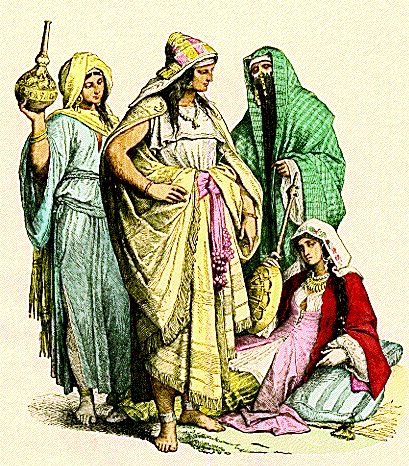Why are Muslims still following what they adopted from the Byzantines? When Christians have dumped it?
... edit: perhaps Slysoon could add some historical notes?
Saint Paul, in his letter to the Christians of Corinth, Greece, wrote what would eventually become known as
First Corinthians, the seventh book of the New Testament. Saint Paul was not satisfied with the practices of the Christians of Corinth, and was worried as to whether or not a pious Christian community could thrive in such a cosmopolitan city. In his letter, he commanded the Corinthian women to cover their hair, as opposed to allowing it to flow freely down their backs. The respectable women of Saint Paul's time all covered their hair, both inside and outside of Church. Women of the time who were suspected of committing adultery were obligated to uncover their head and let their hair flow freely. The command to wear a head covering by Saint Paul probably referred to a shawl of some sort.
The traditional garment of Byzantine women was practically the same as the traditional garment of Roman women. The Byzantine women wore what is called a
stola, which was a long dress (with sleeves) worn over a tunic. The
stola was accompanied by a
palla, a shawl-like garment which covered the hair and rested over the shoulders. This garment was not exactly the same as the garments Muslim women wear today, and it was not necessarily as strict, but the idea behind both are the same, and there is good reason to believe one lead to the other. The Qur'an itself requires women to "cover up", but whether or not that command requires a hijab or simply modest dress is the dispute because details in the Surah are not given.
Why Muslim women practice the custom of covering their hair today has two primary reasons. First, many scholars of the Qur'an and Hadith believe that it truly is a religious requirement. Secondly, the custom has been followed for so long that it naturally feels like an obligation, sometimes religiously, sometimes culturally, and sometimes both. Would you prefer it,
S.A.M., for Muslim women to drop the concept of covering one's hair? It may not seem like a significant change, but the veil has permeated deeply various Muslim cultures and has become a form of identity for Muslim women.




